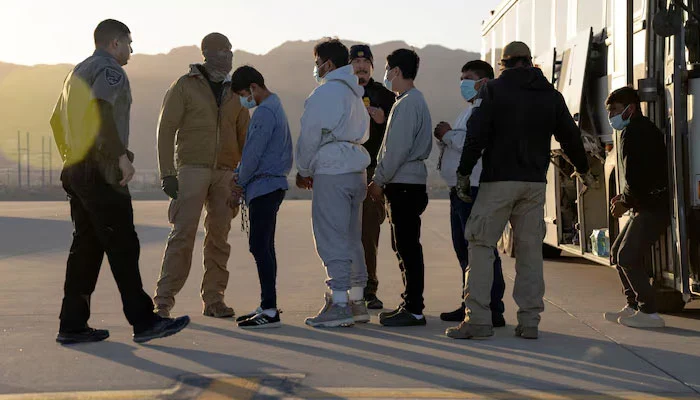Introduction
Facts about Immigration advocates are raising alarms after a disturbing incident in which immigrants awaiting deportation to Libya were reportedly forced to remain on an airport tarmac for several hours. According to an attorney representing the group, the deportees were not provided with basic necessities and were exposed to extreme conditions. This event sheds light on the growing concerns surrounding deportation practices and human rights violations in Libya.

1. Immigrants Were Held on the Tarmac for Hours
According to legal representatives, the group of immigrants—mostly sub-Saharan African nationals—were made to sit on the hot tarmac without shade, water, or restrooms. Some were handcuffed throughout the ordeal. The conditions have been described as degrading and inhumane.
2. Libya Deemed Unsafe for Deportees by Human Rights Groups
Multiple international organizations, including Human Rights Watch and the United Nations, have reported that Libya remains unsafe for deported individuals due to ongoing conflict, torture in detention centers, and abuse by armed militias. Sending immigrants back to such a volatile environment has been widely criticized.
3. Attorney Claims Due Process Was Ignored
The deportees’ attorney claims that several individuals were denied the opportunity to properly challenge their deportation or request asylum. The alleged procedural failures raise legal questions about the legitimacy of the removals and potential violations of international law.
4. EU and African Authorities Under Scrutiny
This incident highlights the growing scrutiny faced by both European and African governments over deportation policies. Libya has become a key transit and return destination under EU migration deals. However, human rights experts argue that this cooperation often comes at the expense of migrant safety and dignity.
5. Psychological and Physical Toll on the Deportees
Witness accounts detail the distress and trauma experienced by the immigrants, many of whom had already fled war, persecution, or poverty. Being forced to sit on the tarmac under surveillance added further psychological and physical tolls, making their return to Libya even more perilous.
Conclusion
The incident of immigrants held on a tarmac before deportation to Libya has sparked renewed concern over how deportations are carried out and who is being protected in the process. As pressure mounts on authorities to uphold international human rights standards, this case serves as a disturbing reminder of the real human cost of flawed immigration systems.
For more on migrant policies in North Africa, read our related article: EU Faces Criticism Over Migrant Detentions in North Africa.